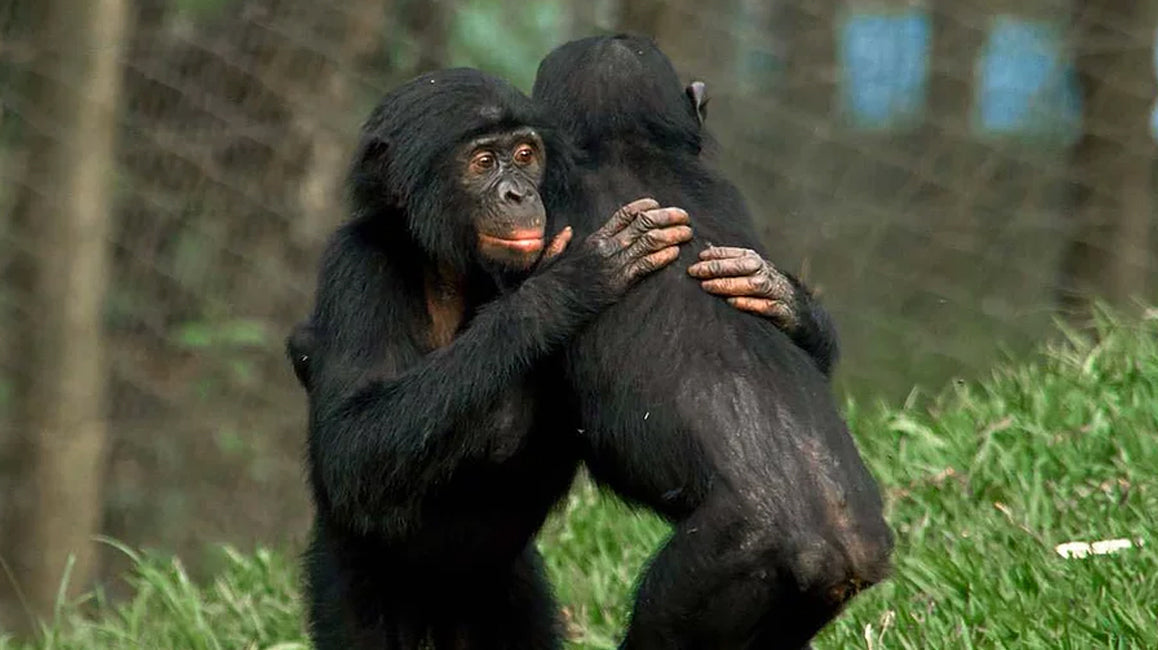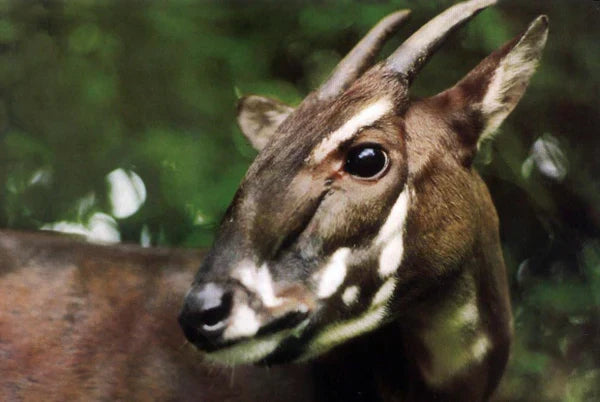We support Friends of Bonobos through 1% for the Planet.
Discover the sanctuary and the history of Lola ya Bonobo in Land of the Bonobos with its founder Claudine André through this short 7-minute documentary.
Touched by this association's commitment to the Congolese bonobos, we wanted to support them on our own scale by donating a portion of our sales each year, for each pair of shoes sold. The money raised will go directly to the various local projects implemented by Friends of Bonobos to improve the living conditions of this endangered species.
"We are the ones who destroy, but we are the ones who have the intelligence to save."

1. The sanctuary of Lola ya Bonobo

Needing love and attention to grow, Each bonobo cub is then assigned a surrogate human mother. A veterinarian and extraordinary staff are also on hand to support them.
Upon reaching adulthood, adult bonobos are released into the wild and receive full protection from the nature reserve . Staff on site work to protect their home, the rainforest.

2. The objective? To heal, liberate and protect
The Ekolo ya Bonobo Community Reserve is the only natural site that protects and supports Congo's Bonobos.
After growing up at Lola ya Bonobo, adult bonobos are released into the wild and given comprehensive, long-term protection. Friends of Bonobos conserves their natural rainforest habitat and works tirelessly with local communities to reduce poverty, the primary cause of poaching . On-site staff are also committed to providing care, education, and raising awareness among local communities about the need to preserve Africa's biodiversity.

3. Ekolo ya Bonobo - The Land of the Bonobos
Ekolo ya Bonobo means "Land of the Bonobos" in Lingala, the predominant language of the Democratic Republic of Congo.
Today, around thirty bonobos live in the Ekolo ya Bonobo community reserve . This 120,000-acre (approximately 48,500-hectare) reserve in DRC's Équateur Province is a protected rainforest—a safe haven where bonobos and many other animals and plants thrive.

The Ekolo ya Bonobo Reserve borders a river that connects to the Congo's aquatic transport network. Bonobos emerge from the forest and can be seen on elevated viewing platforms on the shore.
Every year, thousands of people come by canoe and motorboat to see them . For most, it is the first time they have seen a bonobo in their natural habitat. The residents of Basankusu have become "bonobo guardians" who protect the bonobos in their new wild home.

" By participating in bonobo conservation, you not only protect them, but you also contribute to the environmental, social and economic development of the only country in the world where bonobos are found, the Democratic Republic of Congo ."
Fanny Minesi, Executive Director, Friends of the Bonobos of Congo.
Friends of Bonobos is committed to hiring local community members in all project activities, and works with local communities to make all decisions that affect the surrounding population.
Discover the collection that supports Friends of Bonobos. 👇




